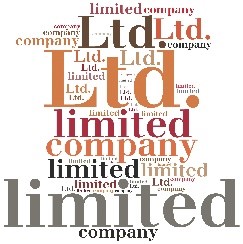Your home may be repossessed if you do not keep up repayments on your mortgage.
The Financial Conduct Authority does not regulate on Buy to Let
Personal versus limited company buy to let – which is the most tax efficient?
Much has been written about the benefits of owning rental properties through limited companies, specifically in relation to the tax advantages when claiming income tax relief. But there is no simple answer to the above question, and much depends on the individual circumstances, such as the number of properties owned and how long you want to hold them for. To explore this issue further, we will be looking at the following:-
• Reducing your tax liability when renting out a property
• Recent changes to the tax treatment of mortgage interest
• The tax advantages of an SPV limited company
• Potential pitfalls of using a limited company
• No one size fits all

Reducing your tax liability when renting out a property
When you rent out a property, it is possible to offset many of the associated costs and expenses against the rental income received, therefore reducing your taxable income, and subsequent tax liability. Regardless of whether the BTL is personally owned or part of a limited company, HMRC insist that the expense must be “wholly and exclusively for the purposes of the property rental business”, and can include some or all of the following (known as finance costs):-
• Repairs and maintenance
• Legal, management and accountancy fees
• Insurance
• Rent, rates and council tax
• Services
• Wages
• Travelling and administration expenses
• Interest and other finance charges
Recent changes to tax treatment of mortgage interest
By far the largest finance cost is the interest paid on the buy to let mortgage – this does not include the repayment element of a capital and interest mortgage, but may include any fees incurred when taking out the mortgage such as lender arrangement fees, broker fees, valuation and legal fees etc. Until April 2017, it was possible for private landlords to deduct these costs, as well as other expenses, from the rental income received before calculating how much tax was due. But from April 2020, they will now have to declare all of their rent as income, pay income tax on the total and then claim back a basic rate deduction of 20% of it as credit (tapered until 2020). This basically means that higher and additional rate tax payers will be worse off.
The tax advantages of an SPV limited company
It is therefore no surprise that landlords are looking for ways to hold onto more of their profits, and setting up Special Purpose Vehicle (SPV) limited companies to manage their BTL portfolios, is proving to be a popular option:-

• Reduced tax liability: because they are viewed as a business, these tax changes don’t apply to BTL’s owned by a limited company, and all expenses, including 100% of mortgage interest, can be written off for tax purposes.
• Lower tax rates: any profits are subject to corporation tax, which is at a lower rate than income tax – currently 19%, and reducing to 17% in 2020.
• Income flexibility: you can withdraw as much or as little income as you like from your limited company, giving you the flexibility to manage your personal income, and therefore marginal rate of tax – useful in retirement, for example
Potential pitfalls of using a limited company
But while this tax treatment can enable you to keep more of your profits, there are some potential pitfalls that mean a limited company will not be right for everyone.
• If you already own buy-to-lets: it is not legally possible to just transfer them into a limited company; they must be sold and repurchased, incurring capital gains tax, stamp duty (plus the 3% surcharge) as well as any legal, valuation and mortgage fees.
• Higher rates: while some lenders try to price buy to let mortgage rates consistently for personal owners and limited company purchases, on the whole, the widest choice and best rates are for personal buy to lets, with limited companies incurring higher rates and fees
• Other taxes and costs: companies incur corporation tax, and have other running costs such as business rates, accounts and legal fees etc; there is no capital gains tax allowance when you sell a property from a limited company, and you may also have to pay dividend tax if you withdraw money from the company
• Ever-changing regulations: the rules governing buy to let and limited companies could change at any time, and a future government may wish to equalise their tax treatment
No one size fits all

So it is important to weigh up the tax efficiencies of limited companies versus the higher cost of borrowing and other costs associated with running a company – but it really depends on your situation…setting up a limited company can certainly be worth considering if:-
• You are purchasing new properties, (but less so if you already own the BTL property)
• You have four or more BTL properties
• You’re planning to keep the properties for the long term
• If you are not looking to draw regular income from the company in the short term (where you will be liable to dividend tax, as well as the corporation tax)
Clearly, there is no easy answer, but if you need help working through the options, we are here to help. Working with your accountant, we can look at the costs and benefits of investing personally or via a limited company, and help you through the qualification and application process for the solution that is right for you.

